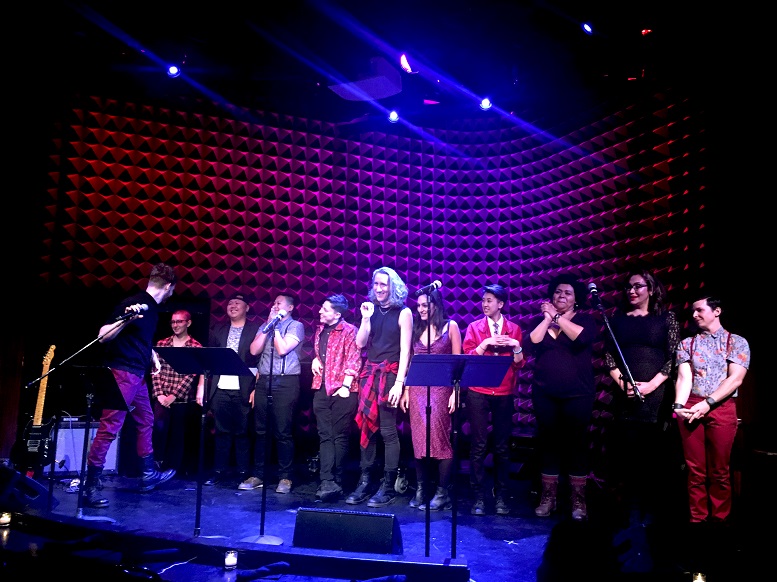Last month, the Civilians hosted a pre-Valentine’s Day cabaret — “Let Me Ascertain You: Hormones” — at Joe’s Pub in New York City. Curated by Civilians R&D Group members Kit Yan, Simone Wolff and Chris Tyler, “Hormones” introduced audiences to characters and original songs based largely on verbatim interviews with people who take hormones for various reasons. The show addressed questions surrounding access, societal norms and human rights, just to name a few.
During rehearsals and the performance, Jasmyn Brielle embedded herself behind the scenes, getting to know a few of the cabaret’s writers and performers. Her photos and edited interviews below give a sense of how the creative people behind “Hormones” view this issue and the role of art in today’s fight for justice.
THE WRITERS
Kit Yan
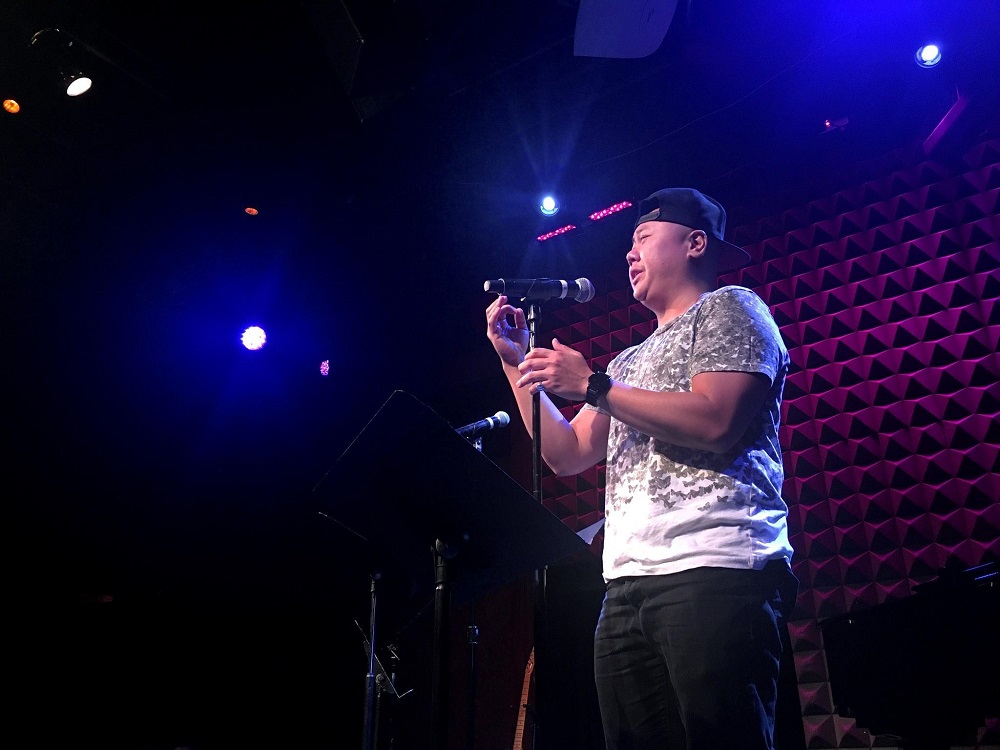
JASMYN: What existing struggle makes hormones a relevant topic of discussion? How do you relate to this struggle?
KIT: So one of the things that a lot of my friends and community members are figuring out right now is with the new Trump administration and the potential repeal of the affordable care act, what kind of hormones are accessible or if hormones and birth control contraceptives are accessible going forward. A lot of folks are getting other folks to fill birth control prescriptions, get IUDs that sort of thing. Already the price of hormones for me fluctuates so some days I go into the clinic and it’s fifteen or twenty dollars and sometimes I go in there and it’s two hundred dollars. So you’re sort of at the whim of pharmaceutical companies who are influenced by legislation so it’s a little bit concerning to a lot of folks.
Simone Wolff
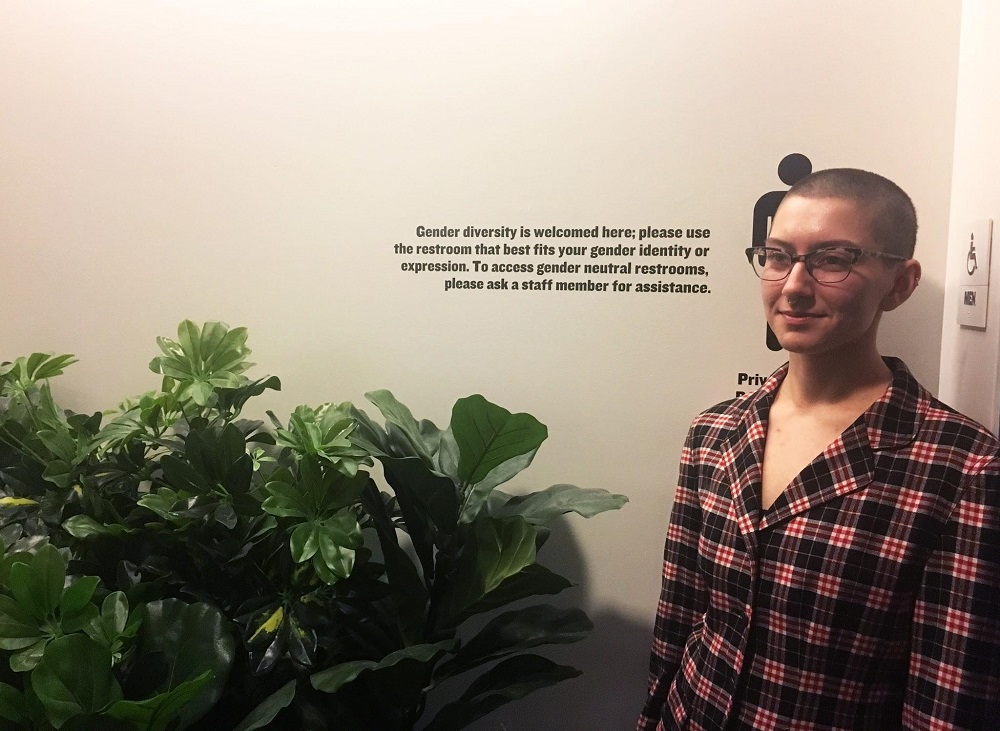
JASMYN: What existing struggle makes hormones a relevant topic of discussion? How do you relate to this struggle?
SIMONE: Well there are a few struggles around hormones defined in our show like birth control hormones, hormone replacement therapy, and performance enhancers. Access to birth control is a huge issue right now. Abortion rights are a part of that because part of abortion issues are about access to hormonal birth control which is some of the most effective birth control. With trans folks it’s the same issue with access. A couple months ago there was a sudden shortage of injectable estrogen which affected a lot of trans women and people who are taking estrogen for HRT. With performance enhancing hormones there’s always drama surrounding sports and people doping. This didn’t really make it into the cabaret but one of my professors is working on the issues of cis female athletes accused of having too much testosterone. So there’s just struggles all around basically. For me, I am essentially at this point too privileged to be affected by these drug rules but I take testosterone. Before that I took hormonal birth control for more than five years. Basically since puberty I’ve been on hormones of one kind of another. My access has always been easy but it definitely affects my community and it’s important to me so I’m trying to stay apprised and raise awareness.
JASMYN: What’s a part of this cabaret that really resonated with you?
SIMONE: It’s this monologue called Chemopause and it’s about a cis woman who gets breast cancer. It’s hormone responsive cancer so basically like my stepmom she went through early menopause induced by chemo and unlike my stepmom she can’t take hormones. Since her body isn’t producing it and she can’t take it, she has to live completely without her body producing estrogen or progesterone of any kind. Just kind of dealing with that and talking about the choice to live and that it’s worth it. I think that a lot of trans people feel that way and I think that’s the reoccurring theme of the show like this is the price of admission it’s not comfortable, it’s not pleasant, it can be scary but this is what I need to do to exist.
Chris Tyler
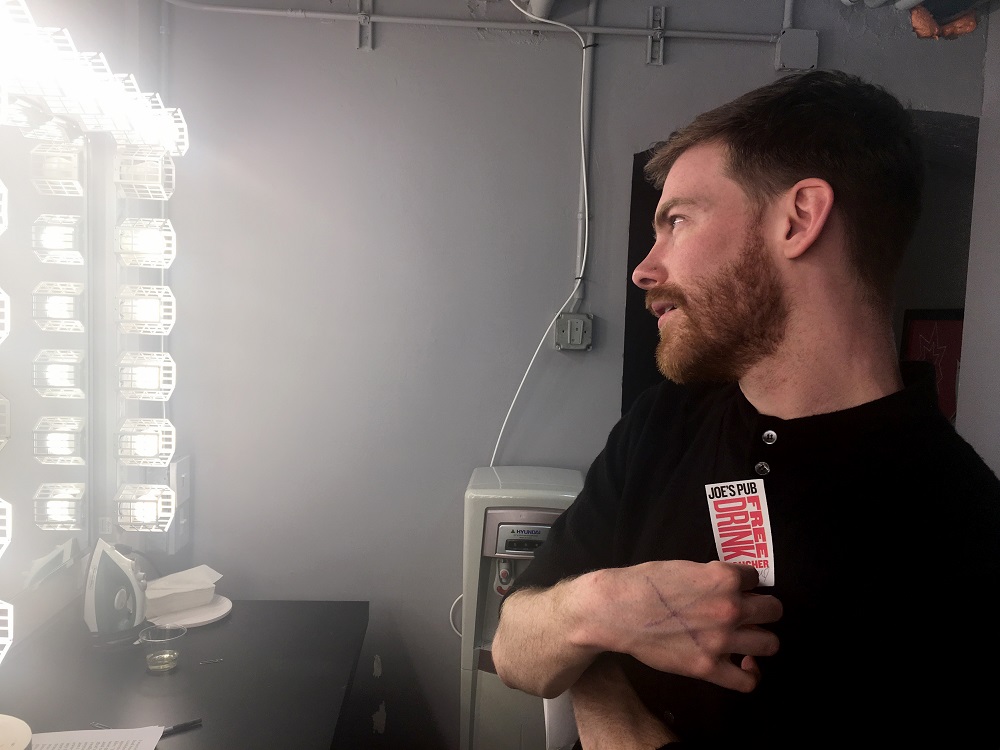
JASMYN: What existing struggle makes hormones a relevant topic of discussion? How do you relate to this struggle?
CHRIS: I personally haven’t had any particular issues related to my own hormones but my dad was diagnosed with prostate cancer three years ago and that treatment regimen causes testosterone suppression which in turn causes your estrogen levels to go up. I’ve been having this kind of fascinating experience dealing with him as he’s going through this shift in his hormones. I’m realizing it is sort of similar or parallel in some ways to what some of my friends who are transwomen are experiencing in the terms of suppressing your T-levels, having your estrogen spike and all of the changes that brings about in your life. I feel like I’ve been very approximate to people who have had different issues. I also have friends who are cis women who have had struggles with birth control and are figuring out what kind of treatment plan makes sense for them if anything because I know that bodies react totally differently to different medications, hormones, and supplements. So it’s exciting to work on this because it’s allowing me to gain even more insight into these issues friends and family are facing.
THE PERFORMERS
Jes Tom
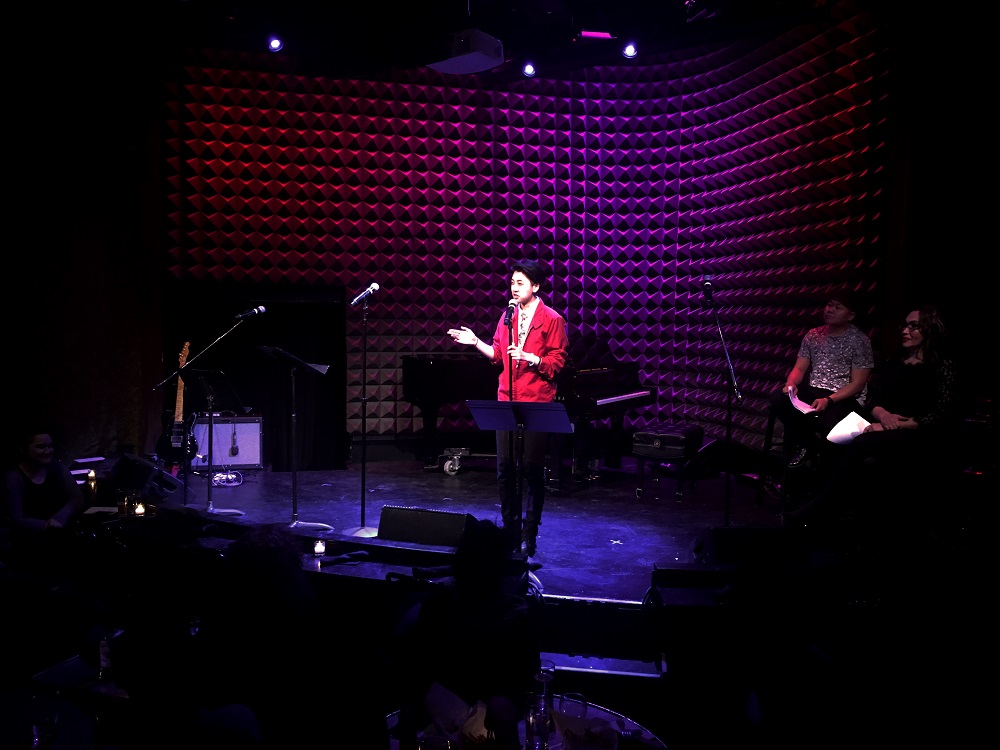
JASMYN: What existing struggle makes hormones a relevant topic of discussion? How do you relate to this struggle?
JES: Where do I start? Increasing limitations on access to certain medical hormones, specifically birth control and hormones for trans people. Lack of access to sex education resources for youth and adults. Cis-centric culture that prizes binary trans narratives over others. I’m a non-binary trans person who currently is not pursuing medical transition, so my goal is to expand the conversation on gender, bodies, and the overall concept of “transition.”
JASMYN: When did you first learn about hormones and how did it change your perspective of your body as an adolescent to an adult?
JES: Funnily enough, my trans narrative is pretty different from what is usually presented in the mainstream. The short version is this: my body didn’t change very much at all as I transitioned from adolescence to adulthood. I always expected I would someday “grow into a woman,” but for me it never really happened (never mind the fact that what someone’s body looks like will not necessarily align with their gender anyway). As I came into my young trans adulthood, I went through a period of believing I had to get on testosterone essentially to force my body to make a choice. And since I didn’t feel like a woman, I must be a man, right? These days I feel like both, and neither, and am still learning the best ways to inhabit my body as it is.
Cecilia Gentili
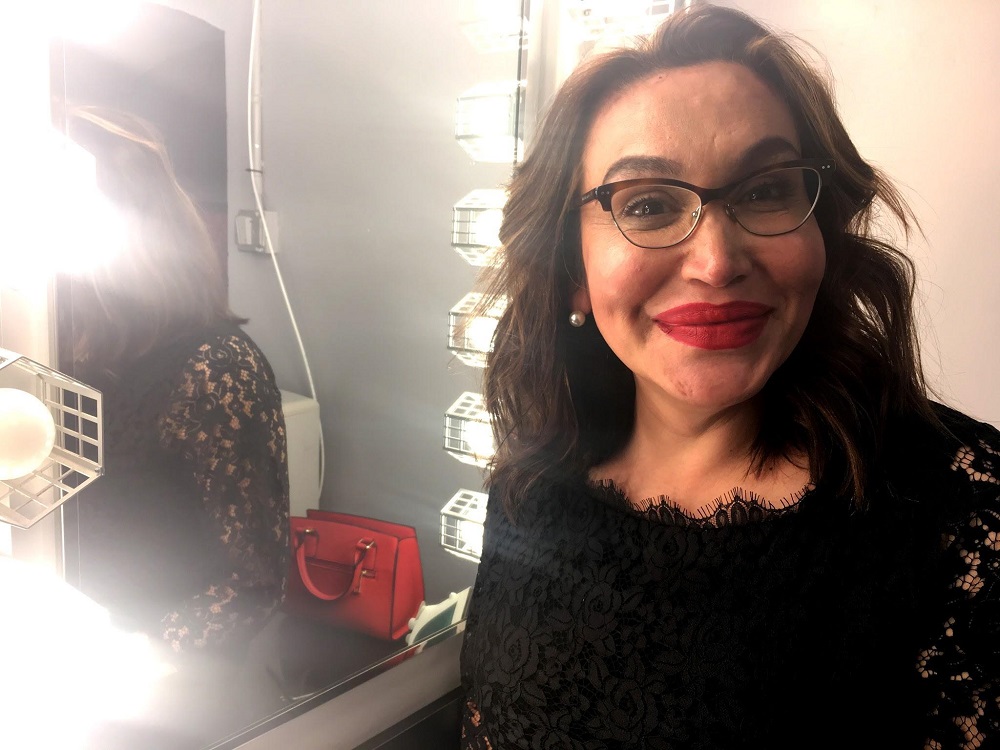
JASMYN: What existing struggle makes hormones a relevant topic of discussion? How do you relate to this struggle?
CECILIA: The struggle is, from my experience, the pressure of the misunderstanding that trans people have to do hormones, you know? As somebody that worked for so many years in the health care system, I met so many people that identify as trans, and they don’t want to do hormones. And that is totally ok. And so I think starting to look at hormones as an aid and not as a definitive need of trans people is very, very important. Also, hormones are expensive, right? I’m very fortunate and privileged to have a job and to have insurance through my job, but so many people don’t. For some people, not being able to have insurance — or not having an insurance that covers it, it can be detrimental to their transition.
JASMYN: What’s a part of this cabaret that really resonated with you?
CECILIA: For me, the show was a very important statement about hormones and, in my case, I was privileged to read the words of Joanna. It made me think a lot about how we, as trans people, sometimes get dependent on hormones and how that can become a very anxiety driven process.
THE COMPOSER
Mal Blum
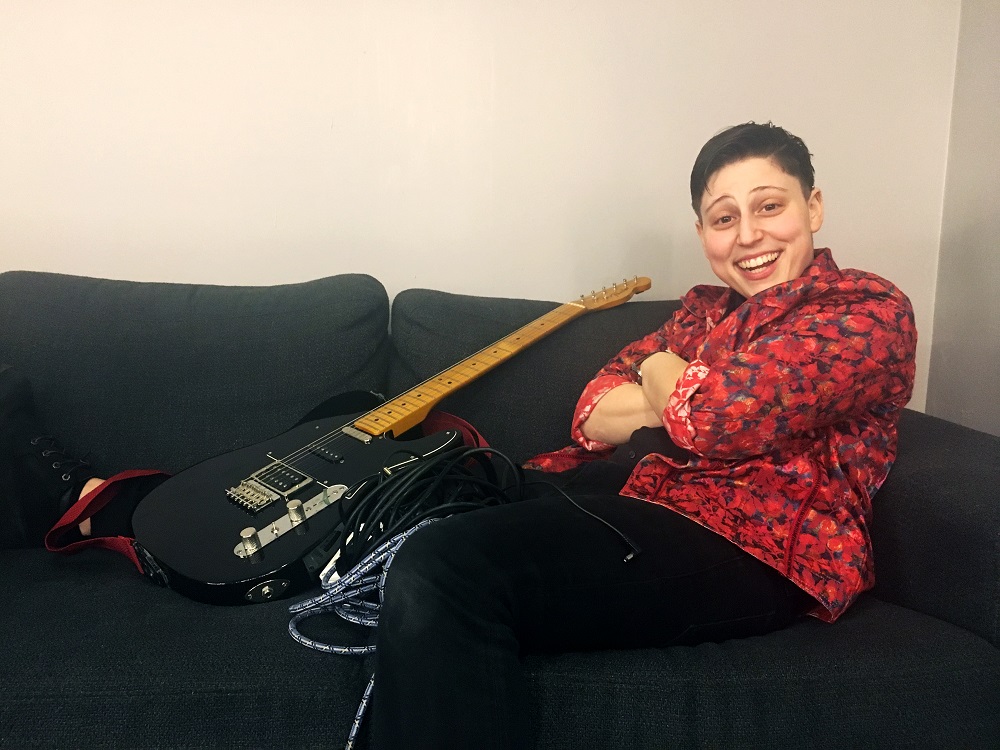
JASMYN: What existing struggle makes hormones a relevant topic of discussion? How do you relate to this struggle?
MAL: It’s difficult for me to discuss hormones because I struggle between skepticism towards any sort of biological essentialism and acknowledging the effect certain hormones have had on my life in terms of my mental health and well being. I have always had an interest in bodybuilding narratives, as a non-binary transgender person who experiences dysphoria it was cathartic to explore certain familiar themes: the body as a project, isolation, overcompensation, control, toxic masculinity, fear of vulnerability, etc.
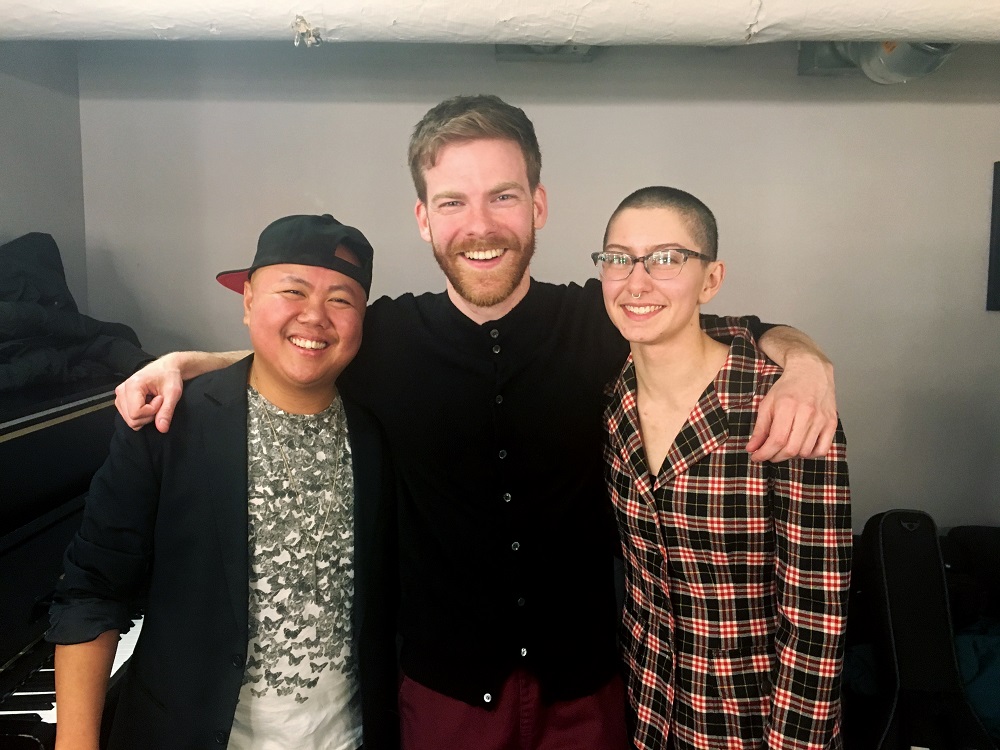
The Civilians thanks the Axe-Houghton Foundation, lead funder of “Let Me Ascertain You” cabaret series.
Author
-

Jasmyn Brielle is a writer, poet, and creative director. She finds her inspiration through love, travel, and nature. After graduating from SUNY Purchase with a B.A. in Journalism she dove into editorial writing at Collide Agency covering events like Village Voice’s Choice Eats, NYC’s Food Film Festival, and Northside’s Taste Talks. Discovering new food haunts is her hobby, and on her days off you can find her writing poems in a sunset.
View all posts


